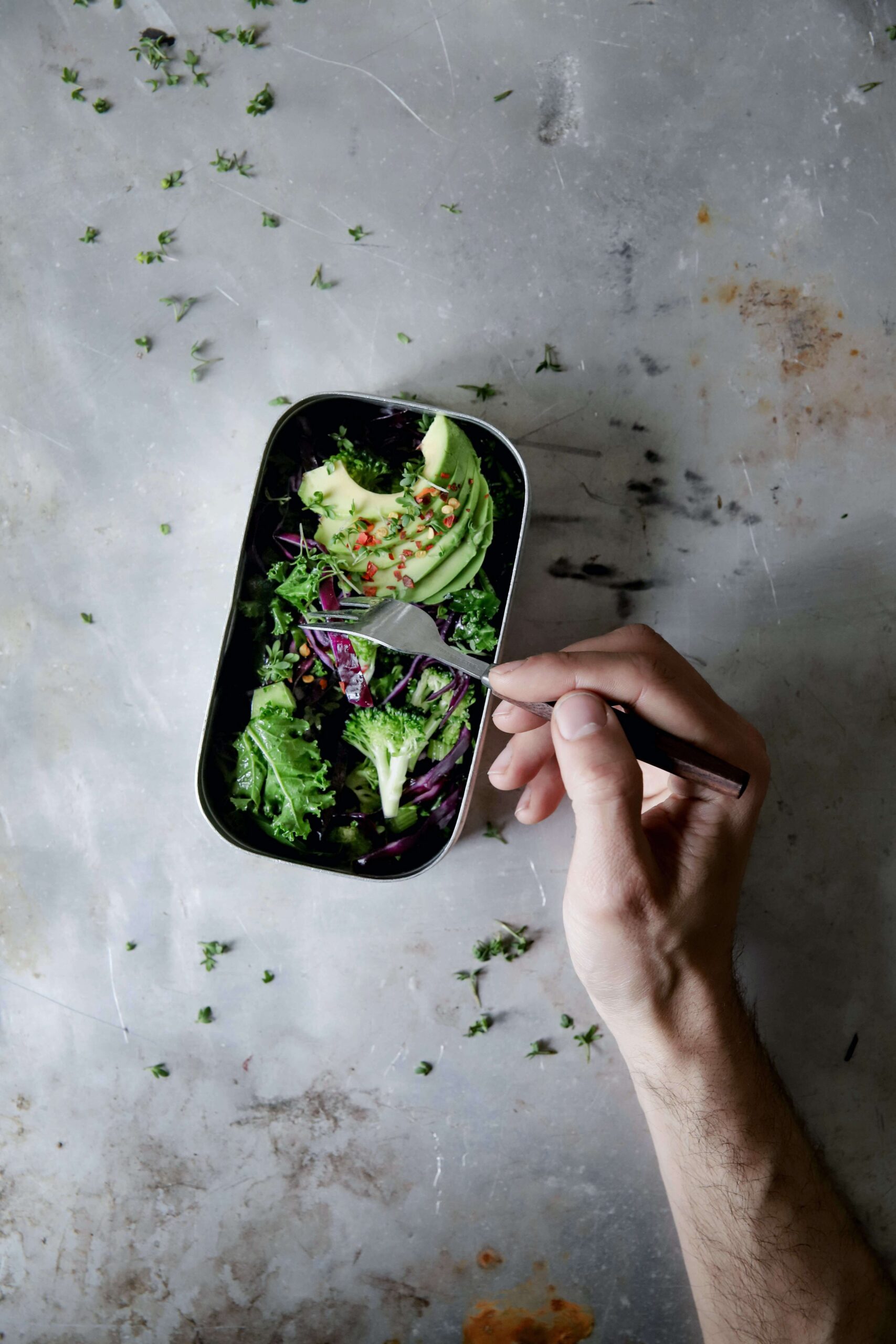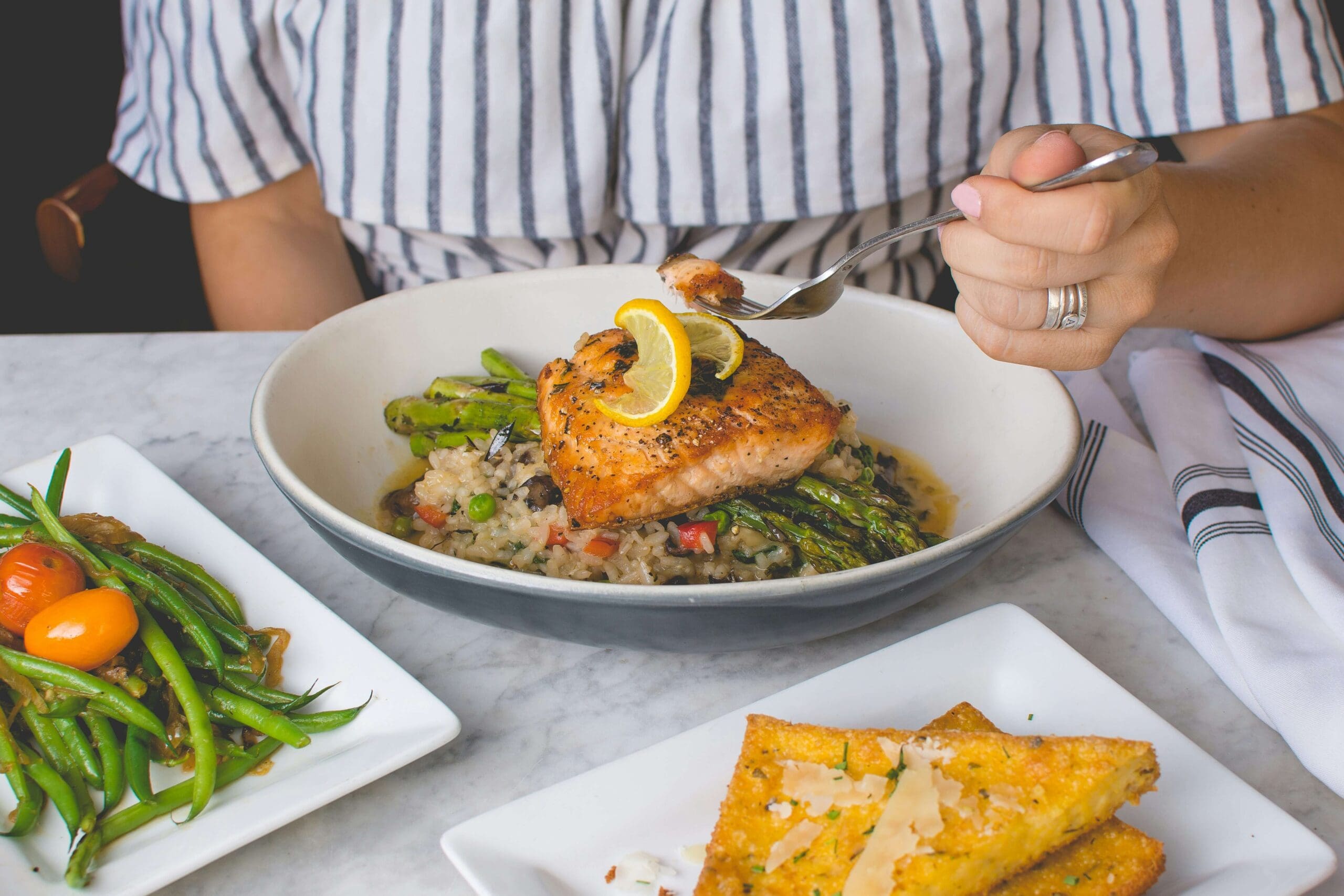You’ve been scrolling again, haven’t you? Late at night, tumbling down the rabbit hole of cancer forums and wellness accounts promising miracle cures through food alone. One voice swears keto starves tumors. Another insists plant-based is the only path.
Someone else claims fasting resets everything. After your diagnosis, food feels like the one thing you can control when everything else spins out of reach. I get it. The desire to heal is deeply human.
But here’s what I see as your oncology dietitian: survivors who’ve restricted themselves into dangerous territory, chasing promises that sound too good to be true because they usually are.
Today we’re cutting through the confusion to look at what actually works for cancer prevention and recovery.
Get The Clean Scan Plan!
Stop second-guessing every food choice. The Clean Scan Plan uses the NED Method 5-Pillar Approach to help you reduce cancer risk through balanced nutrition, movement, hydration, sleep, and stress management. No extreme diets required.
What Are Alternative Cancer Diets?
Alternative cancer diets are eating plans claiming to prevent, treat, or cure cancer outside conventional treatment. Complementary therapies work alongside medical care, while alternative therapies replace it entirely.
That distinction matters enormously because one supports healing while the other can be deadly. As your oncology dietitian who’s worked with over 1,000 survivors, I understand the desperation driving these choices.
One client spent six months on an extreme alkaline diet after someone online promised it would prevent recurrence. She lost 18 pounds, her energy tanked, and her oncologist nearly paused treatment due to malnutrition. The desire for control is human, but restriction rarely equals safety.
If you’re ready for expert, personalized support, apply here for: VIP 1:1 Cancer nutrition & Lifestyle Coaching with me today so you don’t have to second guess everything.
Warning Signs of Dangerous Diet Claims
Watch for these red flags that signal potentially harmful advice:
- Promises to “cure” cancer through food alone
- Claims doctors are hiding the truth about miracle protocols
- Requires expensive supplements or products you can only buy from them
- Tells you to stop conventional treatment in favor of diet
- Relies on testimonials instead of peer-reviewed research
- Uses fear-based language about “toxic” foods or body “detoxing”
As your oncology dietitian, I want you approaching alternatives with healthy skepticism. If something sounds too good to be true, it probably is.
The Ketogenic Diet and Cancer: What 2025 Research Actually Shows
The ketogenic diet forces your body into ketosis by severely limiting carbohydrates, burning fat instead of glucose for fuel. The theory sounds logical: since cancer cells thrive on glucose, cutting carbs might starve tumors while protecting healthy cells.
But 2025 research reveals a complicated picture. A Columbia University study found the keto diet actually increased breast cancer metastasis in mice, promoting spread to lungs. Meanwhile, UCSF research showed keto combined with experimental drugs eliminated pancreatic cancer in mice by blocking fat metabolism.
Potential Benefits and Serious Risks
The ketogenic diet comes with significant trade-offs you need to understand:
- May enhance treatment sensitivity for specific cancers like glioblastoma
- Can cause dangerous weight loss when you need adequate calories
- Leads to nutrient deficiencies in vitamins and fiber
- Triggers constipation and fatigue during active treatment
- Requires medical supervision to avoid malnutrition
If you’re considering a healthy diet, work with me as your oncology dietitian who can monitor your status. Never start extreme diets during treatment without your medical team’s approval.
Plant-Based Diets for Cancer Prevention and Survival
Plant-based diets represent the most well-researched approach for cancer prevention and improved survival. Notice I said plant-based, not vegan. This means most of your plate comes from plants while allowing moderate amounts of lean protein, fish, and dairy if it works for you.
The evidence is powerful: a 2025 systematic review in Nutrition Reviews found young women eating fiber-rich diets had 25% lower breast cancer risk later in life. Every 10 grams of daily fiber reduces colorectal cancer risk by 10%.
The Mediterranean diet, emphasizing vegetables and whole grains, shows 16% reduction in cancer mortality. Recent 2025 research from UCLA Health confirmed plant-based eating patterns significantly lower overall cancer risk through multiple protective mechanisms.
Why Plants Work for Cancer Prevention
Plant foods deliver multiple cancer-fighting benefits through various mechanisms:
- Phytochemicals like sulforaphane in broccoli inhibit cancer cell growth
- Cruciferous vegetables (kale, Brussels sprouts, cabbage) contain protective compounds
- Fiber removes excess hormones that fuel breast and prostate cancers
- Antioxidants in colorful produce protect cells from damage
- Plant-based fats reduce inflammation throughout the body
One of my clients transitioned to plant-forward eating after breast cancer treatment. She didn’t go vegan but filled half her plate with colorful vegetables, added beans to salads, and chose anti-inflammatory foods like berries.
Within three months, her energy soared, digestion normalized, and she felt confident about reducing recurrence risk. The key is adding more plants rather than obsessing over elimination.
Take Control of Your Cancer Prevention Journey
Wondering how to build a plant-forward plate that actually tastes good and fits your life? The Clean Scan Plan breaks down exactly what to eat for cancer prevention without restriction or confusion. You’ll learn the NED Method approach that’s helped thousands of survivors feel confident and clear about their food choices.
Different Types of Fasting Protocols
Understanding the various fasting approaches helps you make informed decisions:
- Prolonged fasting (24-72 hours) before and after chemotherapy sessions
- Fasting-mimicking diets providing minimal calories (~400/day) for several days
- Alternate-day fasting cycling between eating and complete fasting days
- Time-restricted eating limiting daily eating to 6-8 hour windows
- Periodic fasting involving monthly 3-5 day fasting cycles
If you’re ready for expert, personalized support, apply here for: VIP 1:1 Cancer nutrition & Lifestyle Coaching with me today so you don’t have to second guess everything. But if not then join 8K+ readers who are using The Clean Scan Plan.
What Your Oncology Dietitian Recommends Instead
After 15 years specializing in oncology nutrition and supporting over 1,000 survivors, here’s what works: evidence-based nutrition that’s flexible, sustainable, and individualized.
In The NED Method Membership, I teach the NED Method 5-Pillar Approach: nutrition, exercise, hydration, sleep, and self-care. This isn’t about restriction or perfection. It’s about giving your body what it needs to thrive.
The Bottom Line on Alternative Cancer Diets
No diet can cure cancer. I wish I could tell you otherwise, but I won’t mislead you as your oncology dietitian. What we eat matters enormously for prevention and recovery, but food works alongside medical treatment, never instead of it.
The American Cancer Society and American Institute for Cancer Research emphasize that 30-40% of cancers can be prevented through diet and lifestyle. That’s genuinely powerful. But prevention requires consistent, evidence-based nutrition over time, not extreme restriction or miracle protocols that promise quick fixes.
References
- https://www.cancerresearchuk.org/about-cancer/treatment/complementary-alternative-therapies/alternative-cancer-diets
- https://www.mdanderson.org/cancerwise/36-foods-that-can-help-lower-your-cancer-risk.h00-159774078.html
- https://www.cancer.org/cancer/risk-prevention/diet-physical-activity/acs-guidelines-nutrition-physical-activity-cancer-prevention/guidelines.html
- https://www.frontiersin.org/journals/nutrition/articles/10.3389/fnut.2025.1535921/full
- https://www.mskcc.org/news/fasting-primes-immune-systems-natural-killer-cells-to-better-fight-cancer-new-study-in-mice-finds
- https://pmc.ncbi.nlm.nih.gov/articles/PMC11614448/
- https://www.uclahealth.org/news/article/exploring-role-plant-based-diets-cancer-prevention-and-care






